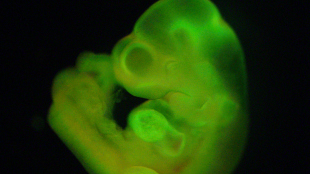 HARUKO OBOKATALast week, Chinese University of Hong Kong’s Kenneth Lee said he would blog his group’s attempts to replicate the controversial stimulus-triggered acquisition of pluripotency (STAP) technique described in two January Nature papers using a refined protocol that Charles Vacanti of Harvard Medical School and Brigham & Women’s Hospital had posted online. Vacanti, one of the authors on the original STAP publications, has vigorously defended the technique even though other labs have failed to replicate the results. “The data and conclusions are honest and valid,” he told reporters in early March.
HARUKO OBOKATALast week, Chinese University of Hong Kong’s Kenneth Lee said he would blog his group’s attempts to replicate the controversial stimulus-triggered acquisition of pluripotency (STAP) technique described in two January Nature papers using a refined protocol that Charles Vacanti of Harvard Medical School and Brigham & Women’s Hospital had posted online. Vacanti, one of the authors on the original STAP publications, has vigorously defended the technique even though other labs have failed to replicate the results. “The data and conclusions are honest and valid,” he told reporters in early March.
Lee now claims he has succeeded at reproducing STAP using Vacanti’s protocol—well, sort of. In posts at ResearchGate, Lee presented confocal and qPCR analyses from the transgenic fibroblasts his team mechanically triturated and bathed in acid over a period of three days, per the latest instructions. Only one day into this procedure, Lee’s team noticed that lots of stressed-out cells were dying. “We expect more and more necrotic cells will form during culture,” Lee wrote on March 28, adding: “The third day of culture is the critical period as reported by Vacanti.”
Today (April 1), Lee posted his team’s day three qPCR analysis, which showed that the trituration-only treated cells expressed higher levels of the pluripotency regulator Oct4 than did the trituration plus acid-bathed cells ...



















